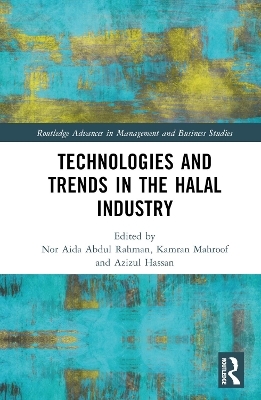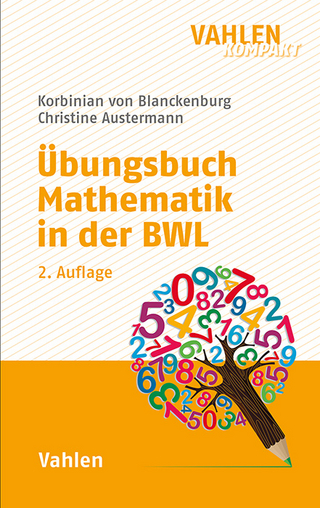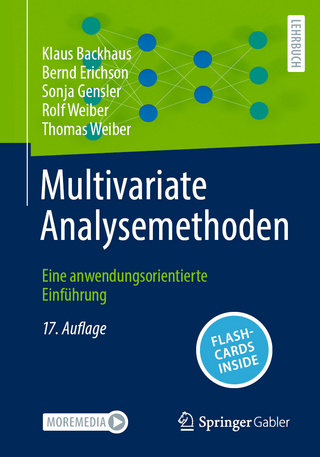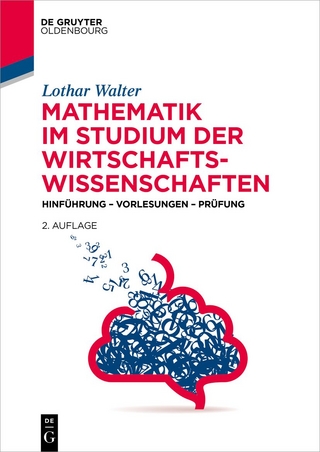
Technologies and Trends in the Halal Industry
Routledge (Verlag)
978-1-032-43705-7 (ISBN)
With recent technological developments, touted also as Industry 4.0, numerous articles published over the years have emphasized the need to investigate the role of technology across all sectors including the halal industry. This book provides a greater understanding of the technologies, trends, and debates associated with the halal industry from different sectors such as food, logistics, pharmaceutical, tourism, medical, cosmetic, and the retail sector.
The book adds substantial discussion to the issues and trends of technology applications in the halal industry as well as the theories underpinning halal technology studies. It is in four sections: an overview of the halal industry, selected theories, technology, and recent issues. The contributors explore how technology has evolved and been applied in industry, and also look at how Industry 4.0 technologies like blockchain, Internet of Things (IoT), automation, machine learning, and augmented reality are being integrated in the halal supply chain process. Written by well- regarded scholars and international academics from Africa, Europe, Middle East, and Asia, this book provides expert contributions from research, regulatory, and industry perspectives.
This book will interest upper level students, scholars, academics, and practitioners in the various discipline of tourism and travel, hospitality, food studies, marketing, pharmaceutical and medical, logistics, management, Islamic studies and information technology in the halal industry.
Nor Aida Abdul Rahman is an Associate Professor at Universiti Kuala Lumpur, Malaysia, and currently serves as a Head of Aviation Management at Universiti Kuala Lumpur (Malaysian Institute of Aviation Technology Campus) in Subang, Selangor, Malaysia. She is also a Fellow at UKM-MPOB Endowment Chair at National University of Malaysia. Her research interest is in halal logistics and supply chain, logistics and supply chain performance, logistics branding, aviation management and air travel. Her work has appeared in Industrial Marketing Management, Journal of Islamic Marketing, Journal of Humanitarian Logistics and Supply Chain Management, Journal of Quality and Reliability and Management, and others. She has also published a number of book chapters, books, edited books, refereed conference proceedings, and is part of the editorial team of book projects with Routledge and Springer. Kamran Mahroof is an Associate Professor in Supply Chain Analytics and Programme Leader for MSc Applied Artificial Intelligence and Data Analytics in the Faculty of Management, Law and Social Sciences, University of Bradford. He has extensive practical experience having worked in various positions for leading companies, most recently in retail, where he led business improvement initiatives in logistics and supply chain. His industrial experience has helped shape his research interests, through which he is actively researching in the areas of technology adoption, Industry 4.0 technologies, circular economy, and applied artificial intelligence. Azizul Hassan is a member of the Tourism Consultants Network of the UK Tourism Society. Hassan’s research interest areas are technology-supported marketing for tourism and hospitality, immersive technology application in the tourism and hospitality industry, technology influenced marketing suggestions for sustainable tourism and hospitality industry in developing countries. Hassan has authored over 100 articles and book chapters in leading tourism outlets.
Contents
Introduction
Section 1 Halal Industry: An Overview
1 Global Halal Industry Outlook: Current Issues and Development
2 Halal Industry 4.0: Current and Future Trends
Section 2 Literature Review and Underpin Theory in Halal Technology Research
3 Technology Adoption in Halal Industry: A Review
4 Diffusion Innovation Technology (DIT) and Institutional Theory in Researching Halal Technology Study
5 Theory of Planned Behavior (TPB) and Theory of Reasoned Action (TRA) in Halal Technology Study
Section 3 Technology in Selected Halal Sector
6 A Technology Comparison of Slaughtering Technique & Physiological Possibilities During The Halal Slaughtering
7 Halal Matters in Halal Food Manufacturing: How Halal Manufacturers Can Benefit from Technology Application
8 Halal slaughtering Process: Methods and Technology Used
9 Halal technology in Shariah Cleansing: Multiple cases of Sertu Application
10 Halal Mobile technology in Tourism: Current Status in Spain
11 Current and Future Usage of RFID based technology in Halal food validation system: Case of Southeast Asia
12 Blockchain technology and Halal certification: Issues and Developments
13 Tracking and tracing technology in upholding Halal product integrity: A Review
14 Technology Application in Halal Logistics: Transport and Warehouse Perspective
15 Technology and Halal Retailing Sector: Digital transaction and What is new?
Section 4 Recent Issues in Halal Industries
16 Pandemic Covid 19: How Halal Tourism Operator utilizes technology for recovery
17 Hard Hit by Halal Meat Cartel controversy: How Blockchain Technology and Internet of Things (IOT) could help
Conclusion
| Erscheinungsdatum | 24.11.2023 |
|---|---|
| Reihe/Serie | Routledge Advances in Management and Business Studies |
| Zusatzinfo | 23 Tables, black and white; 26 Line drawings, black and white; 5 Halftones, black and white; 31 Illustrations, black and white |
| Verlagsort | London |
| Sprache | englisch |
| Maße | 156 x 234 mm |
| Gewicht | 690 g |
| Themenwelt | Mathematik / Informatik ► Mathematik ► Finanz- / Wirtschaftsmathematik |
| Naturwissenschaften ► Geowissenschaften ► Geografie / Kartografie | |
| Sozialwissenschaften ► Soziologie ► Spezielle Soziologien | |
| Wirtschaft ► Betriebswirtschaft / Management ► Unternehmensführung / Management | |
| Wirtschaft ► Volkswirtschaftslehre | |
| ISBN-10 | 1-032-43705-7 / 1032437057 |
| ISBN-13 | 978-1-032-43705-7 / 9781032437057 |
| Zustand | Neuware |
| Haben Sie eine Frage zum Produkt? |
aus dem Bereich


